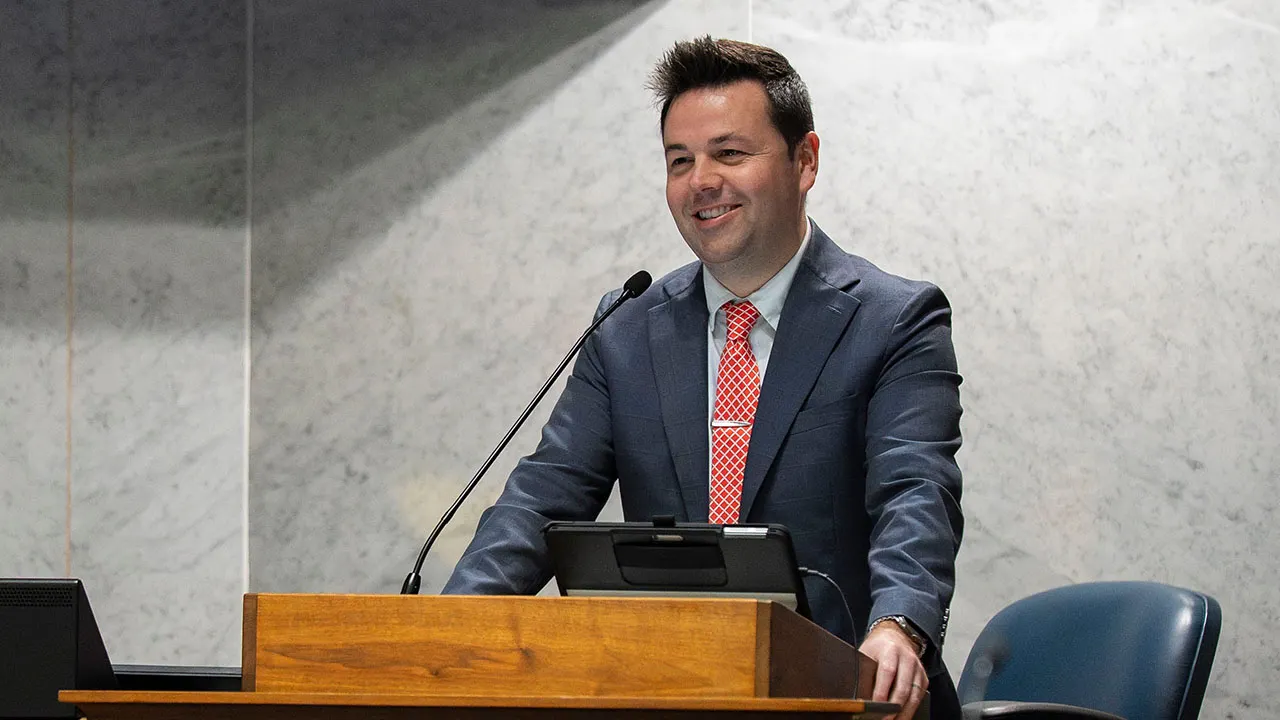
The U.S. Supreme Court certainly has given us a mixed bag of rulings since the overturning of Roe versus Wade. Some are winners and track according to the federal Constitution, while others seem to make little sense, especially in the tradition of limited government the Founding Fathers prescribed. Last week’s overturning of the Chevron case has the potential to have far-reaching and long-lasting detrimental effects to Big Government and its administrative state. We’ll unpack that in today’s Analysis Behind the News, perspective and solutions you won’t get anywhere else.
If you’re concerned about American independence and freedom, then please watch and take the recommended actions. Also, be sure to like, subscribe, and share, so we can break through Big Tech censorship and reach many others.
In its 114-page ruling, the justices decided for Loper Bright Enterprises, a group of herring fisherman who were following a federal mandate of forcing monitors onto fishing boats to watch them as they fish to make sure they were adhering to ethical fishing practices, reporting back to the federal government.
The fishermen explained that when the government program ran out of money and stopped paying these monitors a fee of about $700 per day, the federal agency decided that the fishermen should pay for it. The fishermen disagreed and took it all the way to the U.S. Supreme Court.
When we dig into any of these rulings, many times we are so disappointed in the convoluted judicial gymnastics these justices engage in. Most of their arguments are based on prior rulings instead of basing their decision solely on the Constitution. The Constitution provides that all federal legislative powers are granted to Congress and that they have a limited or enumerated list of powers to legislate upon.
If it doesn’t fall within this list as found in Article I, Section 8, then the courts should automatically find that the legislation is unconstitutional and null and void. However, the court did not do that, but overturned its previous decision in Chevron versus the Natural Resources Defense Council. For 40 years, that decision guided federal agencies to interpret vague federal legislation, instead of Congress clarifying or the court system to interpret.
According to the SCOTUSblog, the Chevron decision was cited in more than 18,000 cases, so it’s overturn is likely to be far-reaching. They also offered this summary, “In a major ruling, the Supreme Court on Friday cut back sharply on the power of federal agencies to interpret the laws they administer and ruled that courts should rely on their own interpretion [sic] of ambiguous laws. The decision will likely have far-reaching effects across the country, from environmental regulation to healthcare costs.”
We wonder which victims of federal agency overreach will be the next in line to sue.
In reviewing the fishermen’s case, we are reminded of the list of grievances the Founding Fathers listed in the Declaration of Independence exactly 248 years ago this very week.
The declaration listed, “He has erected a multitude of New Offices, and sent hither swarms of Officers to harrass our people, and eat out their substance.”
Can you picture being micromanaged by government by having someone watch you work to make sure you are following a certain protocol? Making the fishermen pay for these swarms of officers that ate out their substance was the last straw for them. As one of the fishermen explained, there are times these monitors would make more per day than the owner and the crew.
This is why the Founding Fathers created a limited government. In Federalist #45, James Madison wrote, “The powers delegated by the proposed constitution to the federal government, are few and defined. Those which are to remain in the state governments are numerous and indefinite. The former [the federal powers] will be exercised principally on external objects, as war, peace, negociation, and foreign commerce; with which last the power of taxation will for the most part be connected.”
Nowhere in the enumerated powers of Article I, Section 8 of the Constitution will you find authority to regulate fishing. As such, this is a power kept by the states, the people.
The Chevron decision also skewed the horizontal checks and balances the Founders set up between the three branches of federal government. It gave no incentive for Congress to pass specific legislation and allowed federal agencies to make up their own specifics when none were available from Congress. This constantly expanded the rule of the federal government as this administrative state continued to grow larger and larger by relying on itself to be judge, jury, and executioner of the law’s intent.
While the overruling of Chevron is a good thing, the Supreme Court based its decision on a technicality — specifically, the Administrative Procedure Act of 1946 — and not the proper role of government as practiced under the Constitution.
As Justice Clarence Thomas pointed out, “I write separately to underscore a more fundamental problem: Chevron deference also violates our Constitution’s separation of powers…. Chevron was thus a fundamental disruption of our separation of powers. It improperly strips courts of judicial power by simultaneously increasing the power of executive agencies. By overruling Chevron, we restore this aspect of our separation of powers. To safeguard individual liberty, ‘[s]tructure is everything.’ … Although the Court finally ends our 40-year misadventure with Chevron deference, its more profound problems should not be overlooked. Regardless of what a statute says, the type of deference required by Chevron violates the Constitution.”
As Gun Owners of America posted, “Judges used this now-overruled Chevron Deference to defer to ATF gun control & rule against the Second Amendment.”
With the blatant overreach of many federal agencies, most of which are unconstitutional, including ATF, EPA, and BLM, this curtailment is long overdue and must be followed up by states that will push back against unconstitutional usurpations of power.
The John Birch Society has advocated and worked toward less government, more responsibility and — with God’s help — a better world since 1958. Our vision of less government is based on the Declaration of Independence, which mentions that governments are instituted to protect God-given rights. Again, the federal Constitution spells out the powers given to the federal government by the states. If Congress legislates on anything not on the list, it should be viewed as a usurpation of that power by Congress from the states. According to the Founders, the states then have a duty to interpose and nullify the usurpation. In the fishermen case, the New Jersey state legislature should have stepped forward and told the federal agency and Congress that it is nullifying the legislation, thus protecting New Jersey’s constituents and New Jersey’s constitutional powers.
The longer the states stay silent and the more states rely on the federal courts for action, the more power that gets usurped from the states and the people. This is a major reason why the federal government is as big and corrupt as it is. Members of The John Birch Society have helped to educate millions of Americans over the last 65 years of the proper role of government, including the very powerful, direct, and constitutional tool of interposing to nullify unconstitutional legislation.
If your local, county, and state legislators are not practicing this, it’s time they start. The Founding Fathers expected an educated and engaged electorate. Let’s hold accountable those that represent us by helping them see their constitutional duty.
Learn more by downloading, reading, and distributing “The Founders’ Brilliant Solution to Big Government: Article VI.” Links are in the description. And if you really want to make a large impact, join The John Birch Society today to work with others in your local community. Many others are doing so right now throughout the rest of the country. Join a local chapter and get your community, your state, and your country turned around.
Let’s build on this win from the U.S. Supreme Court.
I’m Bill Hahn for The John Birch Society, and until next time, learn more, and take action!
ACTION ITEMS:

































 Reaction & Commentary
Reaction & Commentary
















